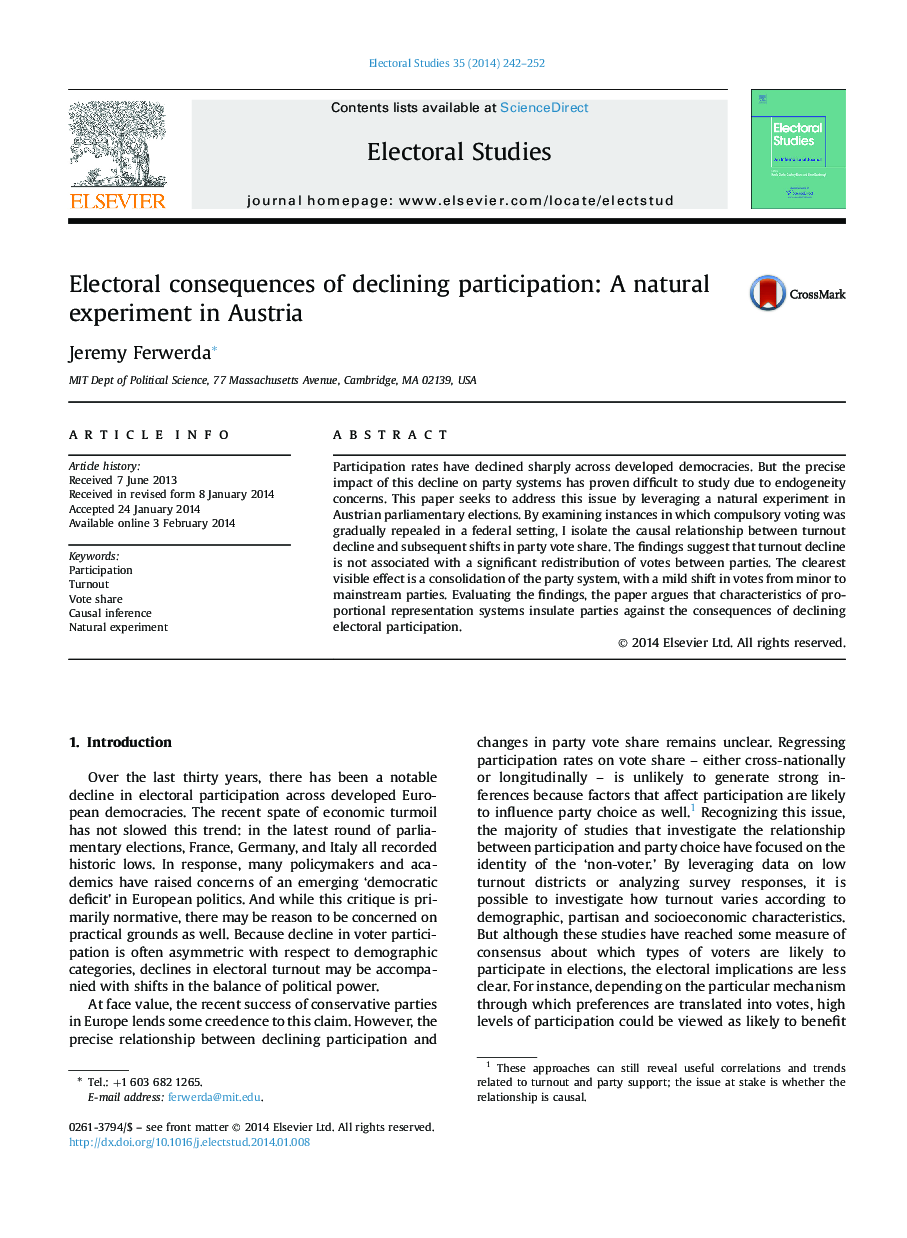| Article ID | Journal | Published Year | Pages | File Type |
|---|---|---|---|---|
| 1051785 | Electoral Studies | 2014 | 11 Pages |
•I examine the relationship between turnout decline and party vote share.•I use a novel approach: subnational variation in the repeal of compulsory voting.•Large declines in turnout only have minimal effects on party vote share.•The only observed redistribution of votes is between minor and mainstream parties.•Characteristics of the party system may insulate parties from the effects of turnout decline.
Participation rates have declined sharply across developed democracies. But the precise impact of this decline on party systems has proven difficult to study due to endogeneity concerns. This paper seeks to address this issue by leveraging a natural experiment in Austrian parliamentary elections. By examining instances in which compulsory voting was gradually repealed in a federal setting, I isolate the causal relationship between turnout decline and subsequent shifts in party vote share. The findings suggest that turnout decline is not associated with a significant redistribution of votes between parties. The clearest visible effect is a consolidation of the party system, with a mild shift in votes from minor to mainstream parties. Evaluating the findings, the paper argues that characteristics of proportional representation systems insulate parties against the consequences of declining electoral participation.
